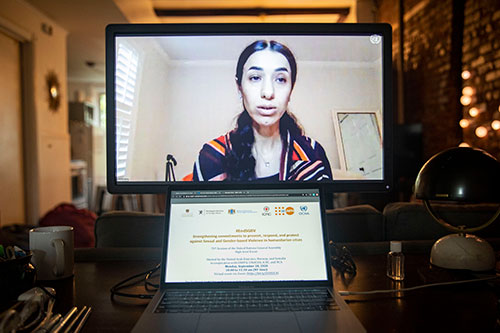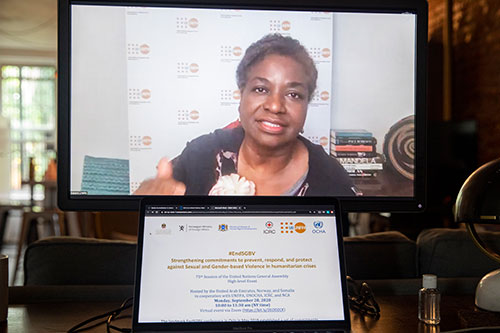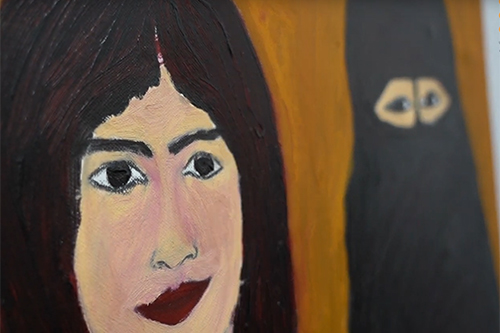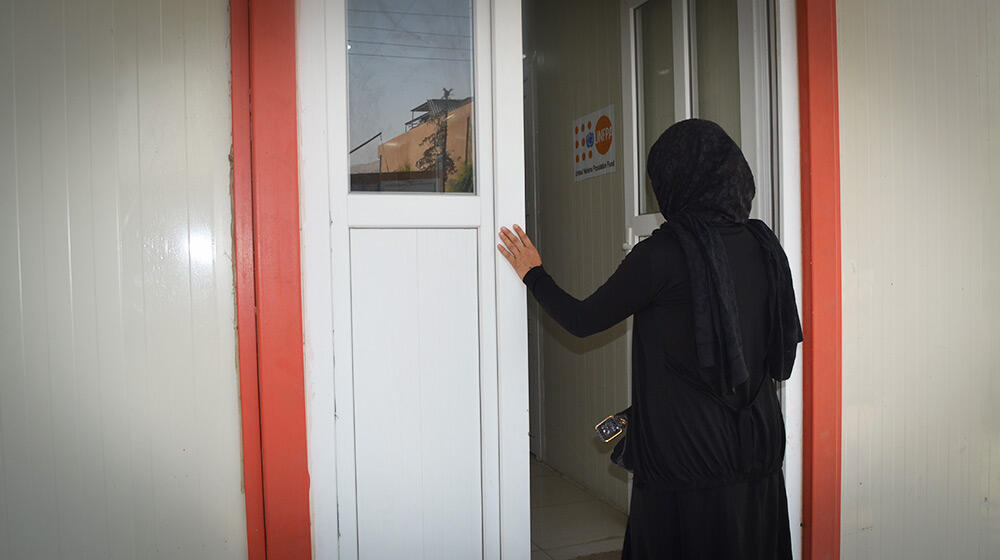UNITED NATIONS, New York/DOHUK, Iraq – Nearly 1,000 delegates convened at a virtual United Nations event yesterday to urge action to end sexual and gender-based violence in humanitarian settings.
Sexual and gender-based violence affects one in three women and girls globally. In some humanitarian settings, this figure is estimated to be two in three. The consequences are devastating for individuals, families and communities alike, costing the world an estimated 2 per cent of its annual GPD.

high-level event. © UN Photo/Rick Bajornas
The high-level event was convened by the governments of the United Arab Emirates, Norway and Somalia, in coordination with UNFPA, the UN Office for the Coordination of Humanitarian Affairs and the International Committee of the Red Cross, in order to follow up on progress made since the “EndSGBV” conference held in Oslo in May 2019.
At that 2019 conference, a variety of commitments were mobilized to help end sexual and gender-based violence in crisis settings. Some 86 per cent of the financial pledges from Oslo have been disbursed, delegates heard yesterday.
“But we cannot allow ourselves to rest on the laurels of our accomplishments,” said Nadia Murad, a Nobel Peace Prize laureate and President and Chairwoman of Nadia's Initiative. “Collectively, we must identify our failures and work collaboratively to create solutions. Only then can we turn our failures into achievements. One of the biggest failures is our unwillingness to provide adequate resources to communities in peril.”
Healing and justice
Ms. Murad is a member of the Yazidi community, which was brutalized by the Islamic State of the Iraq and the Levant (ISIL, also known as ISIS or Daesh). After the northern Sinjar District of Iraq was taken by the militants in 2014, Yazidi women were subjected to horrifying violence, including sexual slavery.
Though ISIL no longer controls Sinjar, “thousands of Yazidis still face sexual violence every day at the hands of ISIS,” Ms. Murad said. “Over 2,800 Yazidi women and children are still missing and in captivity.”
She called on delegates at the event to seek justice: “Victims deserve justice. Investigations have begun. Evidence has been collected, and survivors have recorded their testimonies. But justice has yet to be served.”
UNFPA Executive Director Dr. Natalia Kanem spoke to these points in her own remarks: “Part of healing is addressing impunity and the political blindness that does not react when women are damaged and in danger.”

importance of scaling up services for survivors. © UN Photo/Rick Bajornas
Dr. Kanem also called for more services to respond to the needs of survivors. “The psychosocial consequences need to be taken seriously,” she said. “We need to invest in… social work and legal counselling for women and girls affected by this issue. I hope that case management will be scaled up.”
Help on the ground
In Iraq, UNFPA is supporting such services for survivors of gender-based violence, including for members of the Yazidi community.
“Each day would last a year. We would die every minute. Not every hour but every minute,” Yasmin* told UNFPA. Yasmin, a Yazidi, was abducted by ISIL and sold seven times, experiencing horrific violence each time.
After her ordeal, she received services from the Women and Girls’ Treatment and Support Centre in Dohuk, Iraq, where UNFPA supports medical, psychological and legal assistance for survivors.
“The first case we received was a survivor of the most atrocious forms of sexual and physical violence,” said Qalavej Jafaar, a therapist at the centre. By 2019, the centre had received more 1,300 cases.
UNFPA recently finished building an extension at the centre to assist even more survivors. Today, the centre is supported by the European Regional Development and Protection Programme and the governments of Australia, Canada and Luxembourg.

in addition to other services. Image from the film.
The care survivors receive is specialized to address the traumas they have endured. “I have been attending the centre for treatment for two years,” Yasmin said. “I have learned from the doctor that I am dignified and I have to keep my head up.”
COVID-19 complicates response
But recent events have complicated the ability of humanitarian actors to prevent and address gender-based violence, speakers at the high-level event yesterday highlighted.
“COVID-19 has set back progress, and we see a surge in gender-based violence around the world,” said Dr. Kanem.
“We have all had to adapt,” she added.
In Iraq, for instance, UNFPA has created a remote case management system to help women receive treatment even under lockdown.
Still, Dr. Kanem said, “stronger collective action is urgently needed to protect the rights of women and girls.”
The world must also start listening to survivors, delegates at the event emphasized.
“Survivors know best what they need to heal and recover,” Ms. Murad said. “Efforts to engage survivors at every level of their recovery will empower them."
*Name changed for protection and privacy


